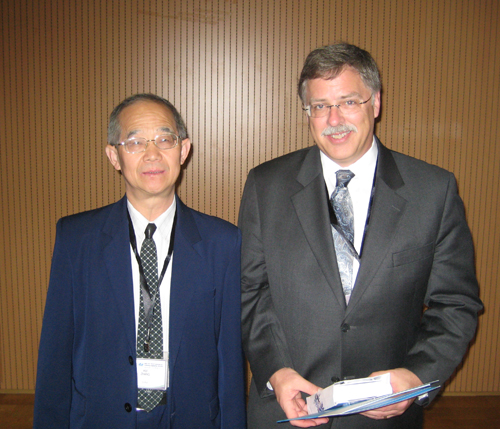 Brief Introduction:
Brief Introduction:
The International Association for Continuing Engineering Education (IACEE) is an international non-profit and non-governmental organization.
The IACEE was founded in May, 1989 at the 4th World Conference on Continuing Engineering Education (WCCEE) in Beijing by ten organisations including the China Association for Continuing Engineering Education, the Former Soviet Union Education Commission, the African Network of Science and Technological Institutions, the American Society for Engineering Education, the European Society for Engineering Education, the Association for Engineering Education in Southeast Asia, East Asia and the Pacific, the Association for Engineering Education in South-Central Asia, the Federation of Caribbean Associations of Engineers, the Pan American Union of Engineers Associations and the Federation of Arab Engineers. The IACEE has become a non-official organisation in partnership with the UNESCO.
The aim of the IACEE is to support and enhance lifelong engineering learning, training and education worldwide, to promote research in continuing engineering education and to advance the development of continuing engineering education institutions. It also takes into consideration the special needs of developing countries.
OUC’s Participation and Contributions to IACEE Activities:
The OUC has actively participated in the WCCEE —— one of the IACEE’s major events. Representatives from the OUC have presented papers, attended academic exchanges and discussed with foreign experts and scholars currently important issues in continuing engineering education and the possibility of future cooperation.
Zhang Hui, deputy Party secretary of the OUC, led a delegation to attend the 13th WCCEE conference in Valencia, Spain from May 14 to 19, 2012. Zhang Hui and the IACEE President Nelson Baker had in-depth discussions during the conference. Dr. Nelson Baker spoke highly of the speech delivered by the representative of the OUC. He hoped the OUC could become an institutional member of the IACEE and would play a more important role in promoting the development of continuing engineering education worldwide.
